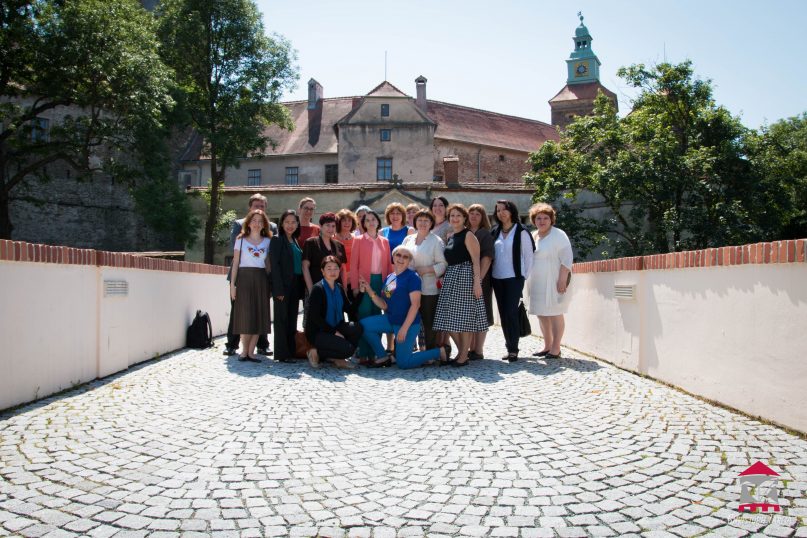United Methodist Women organized the third round of the Women’s Peace Dialogue, June 27 – 29, at the Austrian Study Center for Peace and Conflict Resolution. The event brought together 25 women leaders from 15 Eastern European and Central Asian countries for work around critical issues of peace and conflict in the region.
United Methodist Women started the Peace Dialogues in 2014, when conflict between Ukraine and Russia intensified. The national organization saw the need for a safe space for women civil society leaders to work toward peace, and it found a formidable partner in the World Federation of Ukrainian Women’s Organizations and in five regional organizations. Together, the groups began working on a sustainable platform for women peace leaders in the region.
The success of the initial round of the Women’s Peace Dialogue led to a second round in 2016, which expanded to include more than 15 women peace leaders from several more countries across the region, including Kazakhstan, Tajikistan, Armenia and Azerbaijan. The dialogues addressed multiple conflict contexts and the needs of women in the region on a local, grassroots level.
Need for a Permanent Forum
The Women’s Peace Dialogue and its platform are unique approaches to peacebuilding in a region where conflicts seem to be countless. While other regions have functioning networks of women ready to work in peace processes (as outlined by the United Nations Security Council Resolution 1325 on Women, Peace, and Security), the Eastern and Southern European and Central Asian regions have a fragmented women’s movement, resulting in a lack of progress in gender equality and in understanding women’s roles in peacebuilding.
Tatiana Dwyer, United Methodist Women executive for Global Justice and Christian Social Action, said women in these regions need to recognize their potential.
“There is a need for global leadership development of women in the region, so that women can begin to affect positive change in their local communities, as well as at the national and global level. The Women’s Peace Dialogue addresses this need for leadership development, while at the same time building a network of women peace activists ready to address existing or arising issues while also strengthening the women’s movement in the region.”
United Methodist Women, its international and local partner organizations, and the participants of the second round, with the support of the Austrian government, recognized the need for a permanent forum for conflict mediation, resolution and prevention in the region. The participants decided to establish a platform, and the third round worked toward its finalization.
With support from the Austrian Ministry of Foreign Affairs, the Austrian Development Agency and the Swedish International Development Cooperation Agency, the third round featured the inclusion of women from the Balkans region, who shared their experiences as women working for peace across conflict lines.
United Methodist Women is the largest denominational faith organization for women, who have put faith, hope and love into action on behalf of women, children and youth since 1869.
###





